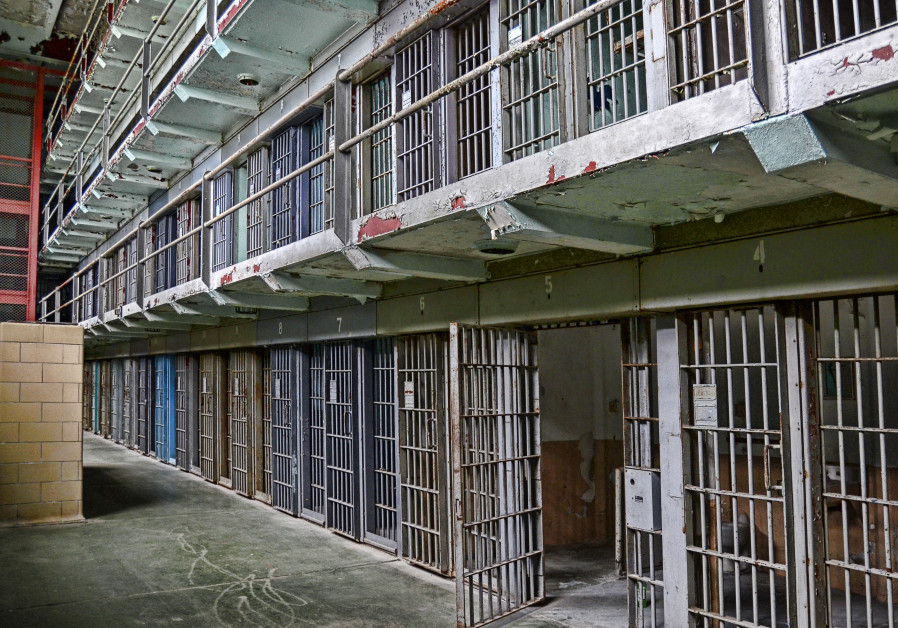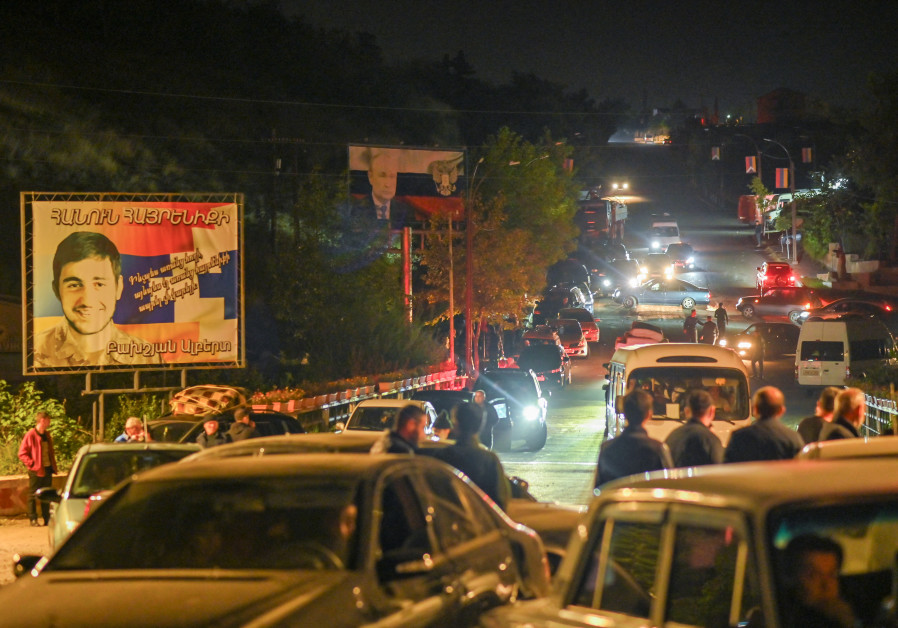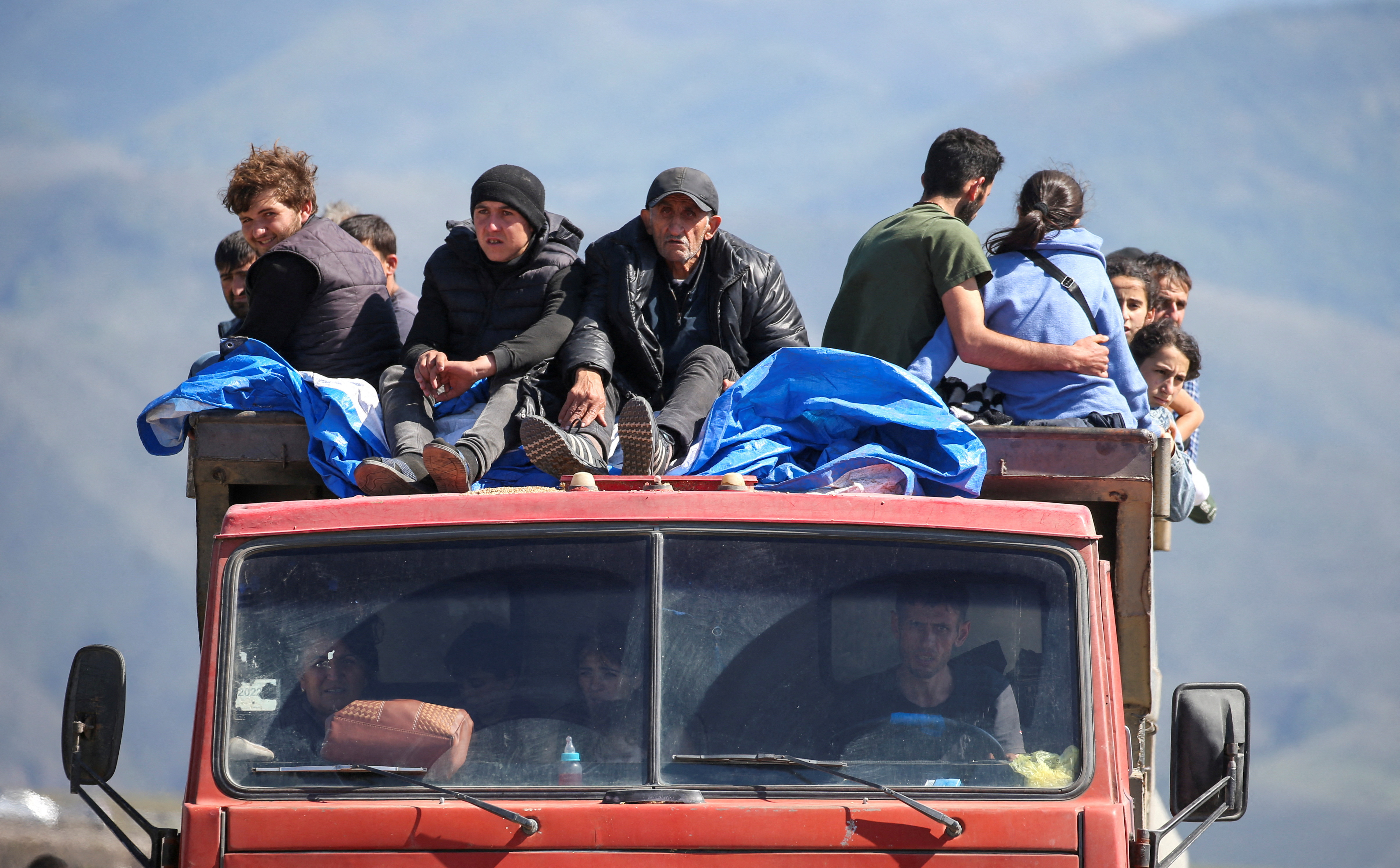US jail practices are racist and an ‘affront to human dignity’, UN experts say

One such practice is restraining and shackling women prisoners during childbirth, the report said.

Many of those leaving have said they fear persecution and ethnic cleansing at the hands of Azerbaijan.





Refugees from Nagorno-Karabakh region ride in a truck upon their arrival at the border village of Kornidzor, Armenia, September 27, 2023. REUTERS/Irakli Gedenidze Acquire Licensing Rights
LONDON, Sept 28 (Reuters) – Azerbaijan does not want a mass exodus of ethnic Armenians from Nagorno-Karabakh and is not encouraging anyone to leave the “liberated” region, Elin Suleymanov, Azerbaijan’s ambassador to Britain, said on Thursday.
In an interview with Reuters, Suleymanov said Azerbaijan, which took back control of Karabakh last week in a military operation, had not yet had a chance to prove what he said was its genuine commitment to provide secure and better living conditions for those ethnic Armenians who choose to stay.
Some 70,500 people had crossed from Karabakh into Armenia by early Thursday afternoon, Russia’s RIA news agency reported, out of an estimated population of 120,000. Earlier, Ethnic Armenian authorities in Karabakh said they were dissolving the breakaway statelet they had defended against Azerbaijan for three decades.
Many of those leaving have said they fear persecution and ethnic cleansing at the hands of Azerbaijan. Some critics have said the exodus, which has shown how little trust many Armenians have in Azerbaijani promises, is what Baku wants as it will make it easier to resettle the area with Azerbaijanis.
Suleymanov, who issued a call on social media appealing to ethnic Armenians to stay and be part of a multi-ethnic Azerbaijan, said he understood why many civilians were frightened, but that those who chose to stay would benefit from planned rebuilding and infrastructure projects.
“What should Azerbaijan do? We cannot keep them by force, we don’t want to keep anyone by force, (but) we don’t encourage anyone to leave,” he said, adding that Azerbaijani authorities had delivered requested medical, fuel and other supplies.
“We would prefer for people at least to be in a position to make a more informed decision on whether they want to stay. So far, Azerbaijan has not had any chance to prove anything because the time was very short.”
HISTORIC MONUMENTS
Karabakh Armenians will enjoy the same rights and protections as other citizens of Azerbaijan, he said. Karabakh is internationally recognised as part of Azerbaijan.
He rejected Armenian fears that Azerbaijan would now proceed to destroy Armenian churches and monasteries in Karabakh, saying Baku had “no reason” to destroy historic monuments.
Baku’s use of force to retake Karabakh has fuelled fears among some Armenians that it may also use force to carve out a land corridor via Armenia to link up western Azerbaijan with its autonomous exclave of Nakhchivan, a strip of territory nestled between Armenia, Iran and Turkey.
Suleymanov said the idea was to re-open transport corridors and make the wider region more prosperous and that he hoped a road and rail corridor could be agreed on via negotiation.
“Nobody is going to open anything by force,” he said. “That defeats the purpose. Nobody is going to put troops there, we’re not going to invade them (Armenia).”
Reporting by Andrew Osborn Editing by Gareth Jones
Our Standards: The Thomson Reuters Trust Principles.
As Russia Chief Political Correspondent, and former Moscow bureau chief, Andrew helps lead coverage of the world’s largest country, whose political, economic and social transformation under President Vladimir Putin he has reported on for much of the last two decades, along with its growing confrontation with the West and wars in Georgia and Ukraine. Andrew was part of a Wall Street Journal reporting team short-listed for a Pulitzer Prize for international reporting. He has also reported from Moscow for two British newspapers, The Telegraph and The Independent.
The post US jail practices are racist and an ‘affront to human dignity’, UN experts say first appeared on The News And Times – thenewsandtimes.com.
